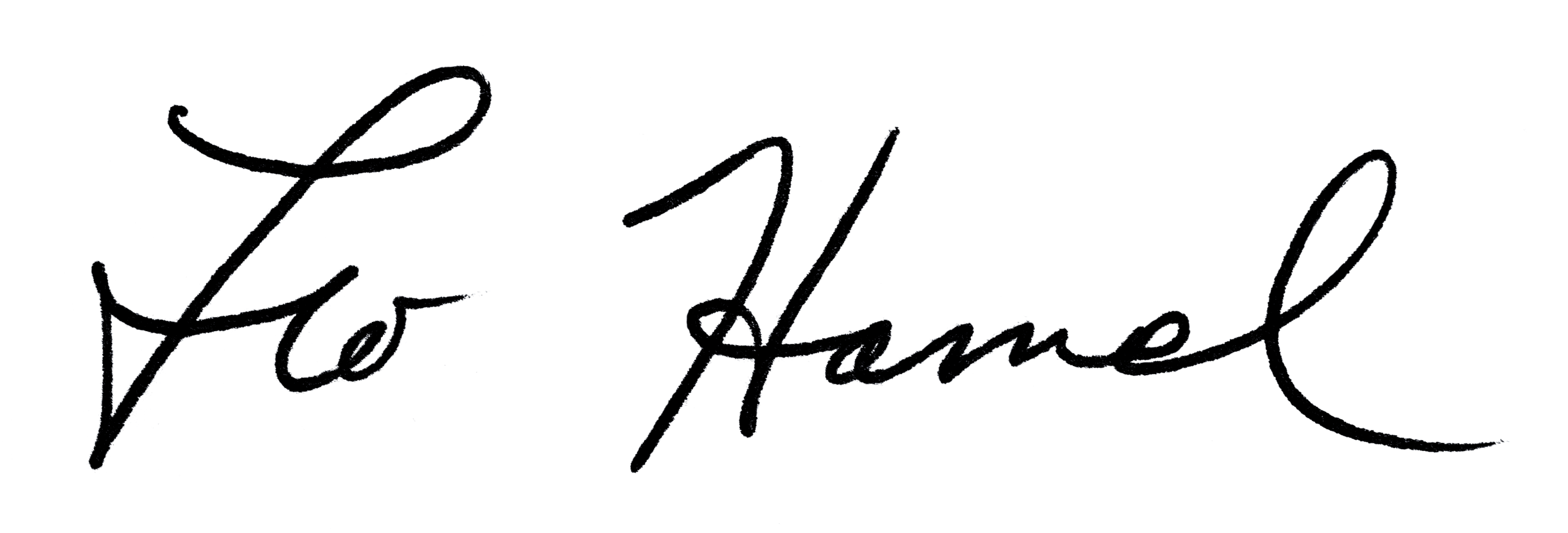
Leo Hamel Fine Jewelers Policy Letter
Confidentiality
All information that we have about our customers is confidential. What they bought, when they bought it, what they sold, when they sold it, how they paid, what accounts they have open with financing companies, where they live, who they were here with, what they said to any of us – it’s all confidential.
Confidential means that you can’t repeat any of this information to anyone else outside of our business who is not that specific customer. We don’t confirm or deny that any person has or has not sold or bought anything from us. We don’t give out any information on any customer for any reason, not to their spouse, not to their friend, not to their children, no one. The only people that should ever require that information would be the person that initiated the buy/sale, or the police with a case number that are looking into unscrupulous activity – and that information should only be given out by management.
A real life example is as follows: I received a call from a man asking about a stolen Omega from 10 years ago. He claimed his buddy traded it in to us for two newer Omegas also 10 years ago. He said he’s spoken to several people at our main office over the past several months – he didn’t recall who – and over the course of his calls, he learned that the person in question did, in fact, buy two Omegas from us. He knew one was a man’s and one was a woman’s, and he also knew the dates and the form of payment used. This is all information that we should NOT have given out to this person.
CONFIDENTIAL INFORMATION ABOUT OUR BUSINESS
Customers often ask questions about our business and while we don’t want to be rude or secretive, we generally do not want to inform customers about how we run our business.
For example, customers often ask what we do with the jewelry and coins we buy. This is information we need to keep confidential in order to prevent a security risk. One of our estate buyers was recently told by a customer that he knew Leo collected coins and was certain we stored them in our Oceanside office. We need to prevent customers from getting ideas like that, valid or not, because that’s the kind of thing that could inspire someone to break in. It could also be a risk to our employees if people think we have a collection of coins or bullion stashed in our buy offices. A general statement such as, “We refurbish and resell everything possible to our customers” is acceptable. Never answer questions about safes, security, or where we keep merchandise.
Some tips and reminders about what to say/not say:
- Never tell customers anything about our supply runs, dates, trips to our refiner, or how we move jewelry for the outer buy offices. Even a little information could be a major risk to you or the employee who transfers our buys. (If you have something to send/pick up, just tell the customer when it will be available and don’t give specific times.)
- Never tell customers about our back rooms, safes, or let them into the back rooms.
- Coins & guns. The response to questions about coins & guns is, “We don’t sell our coins/guns to the public. We sell our coins/guns on the market or to shops.” That’s all. Do not tell people that Leo collects these types of things himself.
- It’s okay to say we trade with dealers if you have to, but don’t say anything specific about how, when or who. We don’t want customers identifying our dealers for business and for security reasons.
- If a customer calls about stolen property, never give them any personal info on what was sold or who sold it. Always direct them to an Estate Buying Manager or to the COO. We are not permitted to disclose certain info about buys to anyone other than the person who sold the item or to someone in the police department so it is best to transfer the call to a manager.
Please use your common sense and discretion with our internal aspects of the company. When in doubt, ask a manager or direct the customer to speak to one of our Estate Buying Managers or the COO.
